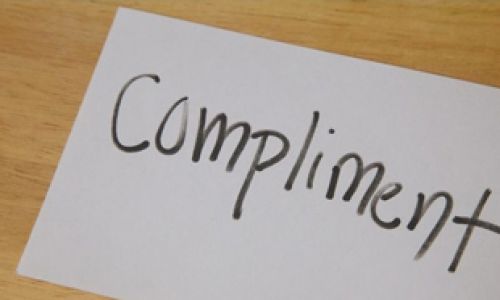A project has been completed on time. You are elated with the results and say, "Good work" to your juniors. So is your job of acknowledging their work done? You might think so, but wait. Here is a catch. What ideally should be said is "Good work, this would not have been possible without you".
Surprised? This is the magic mantra that HR professionals world over are increasingly propagating to managements- show gratitude, do not compliment.
There is a thin line that exists between the two seemingly similar in intent words. But there is a whole lot of difference, if one were to analyse closely.
First, there is this 'trust' factor. According to experts, a compliment might not be trustworthy, as its sincerity comes under the scanner. On the other hand, conveying that you are being grateful for something, leads to the impression that the statement is from the heart and has more value attached to it, as the benefactor is aware of the efforts put in earlier.
Similarly, a compliment given out for a well-executed task might actually end up making the employee awkward and embarrased, as a majority of them do not like being praised in public.
This, however results in a sea change, when the statement with the same intention, is conveyed as a token of gratitude. In the second case,
it might actually work right, as you are specifically discussing about the job on hand, and how it was completed with the efforts of the said employee.
In this day and age where employee retention is one of the major problems faced by managements, a little effort towards establishing a personal connect with employees, might serve in the long run. So it is in this juncture, that a casual compliment and a well-meaning wish will work wonders.
Reports suggest that a run-of-the-mill praise is more likely to be seen as a passing remark, something that is done more as a responsibility to acknowledge, than a spontaneous statement.
However, a slightly different way of conveying the same words, such as, "I am happy that you did this, as it has brought in so-and-so profits", will please the worker to a larger extent. Reason being he or she is exposed to the positive consequences of his work, and will thus be highly motivated to perform in a similar fashion or even better, the next time.
It also helps in forging a personal bond between the boss and his or her subordinate. While some might argue that recognition is the same irrespective of the statement that is dished, few others say that a compliment goes to say that 'you' are recognised, while one that expresses the feeling of gratitude reveals that 'your work' is recognised. On the exterior, it might feel that both mean the same, but a majority of employees feel pleased when their efforts put in to the job, are taken notice of.
Ensuring a clarity in both the ways, also results in another advantage. It will minimise or at times, even eliminate the risk of insider trouble, that tends to form when one employee is given preference over the other.
"When the manager compliments a worker for a specific task done, and makes sure he makes it clear to the receiver and others, the general tendency among employees to dismiss the praise as partial, cannot find place, as the co-workers are fully aware of the reasons that led to the accolade. This will not be case when usual and casual commendations are given", says a HR expert.
Another crucial aspect of this entire plaudit-gratitude debate is that amount of professionalism that is involved. On one hand, a simple admiration to a junior might be mistaken by the concerned person and many others as something that has hidden intentions. But when it comes to acknowledging the job, there can be no other possible meaning taken from it, other than a professional remark.
So next time you want to appreciate someone at the workplace, make sure you do not just 'compliment', but also be 'grateful' for it.



